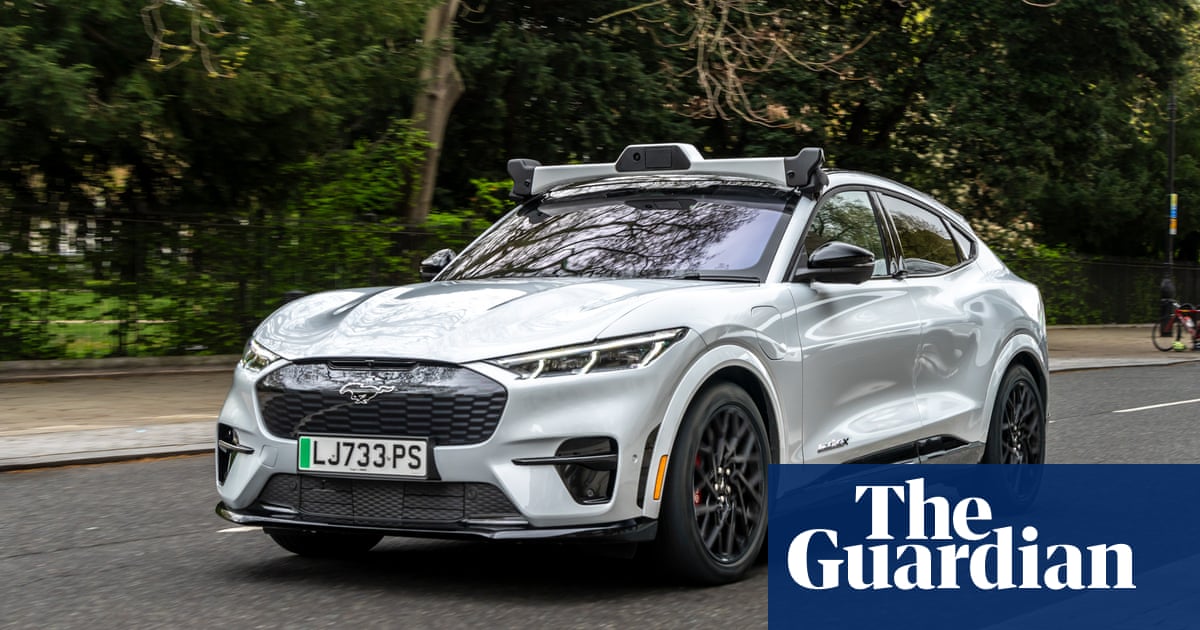Self-driving Ubers are expected to appear on roads inLondonnext year after the government said trials of fully autonomous vehicles would be brought forward to spring 2026.
Companies will be allowed to run pilots of small-scale taxi or “bus-like” services for public use – and, for the first time in Europe, without any human safety driver onboard or in the driving seat.
Uber will partner with the UK tech firm Wayve to launch trials of taxis bookable via its app in the capital, its largest European market.
A fuller rollout of self-driving taxis, or robotaxis, will come after the Automated Vehicles Act fully takes effect in late 2027.
The UK has sped up the process now that driverless taxis have become established in San Francisco in the US and numerous cities in China. Uber rolled out its first driverless taxis with the US firm Waymo in Austin, Texas, in March this year, where Tesla is also planning to launch a rival autonomous service this month.
The Department for Transport (DfT) said the technology would make UK roads safer and claimed it could create 38,000 jobs and create an industry worth £42bn by 2035.
The transport secretary, Heidi Alexander, said: “The future of transport is arriving.Self-driving carscould bring jobs, investment, and the opportunity for the UK to be among the world leaders in new technology.
“With road safety at the heart of our pilots and legislation, we continue to take bold steps to create jobs, back British industry, and drive innovation to deliver our plan for change.”
The DfT said self-driving vehicles couldimprove transport for millions of people – adding new public transport options in rural areas and improving accessibility for those unable to drive.
Trials of self-driving vehicles have beentaking place in the UKfor more than a decade, using technology from Wayve and fellow British company Oxa (formerly Oxbotica). However, so far allroad tests of cars or buseshave needed a safety driver in the vehicleready to take overthe controls.
The Automated Vehicles Act will require self-driving cars to be approved after tests to demonstrate “a level of safety at least as high as competent and careful human drivers”, the department said.
Previouspledges to bring robotaxis to Londonhave not come to fruition. A driverless bus service launched in Edinburgh in 2023 stopped operatingdue to a lack of passengers.
However, autonomous taxi services in the US have now operated hundreds of thousands of paid trips. It has not been all plain sailing: General Motorsabandoned its plans for an autonomous serviceafter a number of incidents, including one where a taxi dragged and severely injured a pedestrian. But early reports suggest self-driving taxis are safer and some customers, especially women, prefer hiring a driverless taxi.
Alex Kendall, the co-founder and chief executive of Wayve, said the accelerated trials would put the UK in a leading position for fully autonomous cars, adding: “These early pilots will help build public trust and unlock new jobs, services, and markets.”
Gavin Jackson, Oxa’s CEO, said: “Clear rules will open up the market and encourage transport companies to introduce the benefits of autonomous vehicles across the country. Today’s announcement shows that Britain is ready for this technology.”
